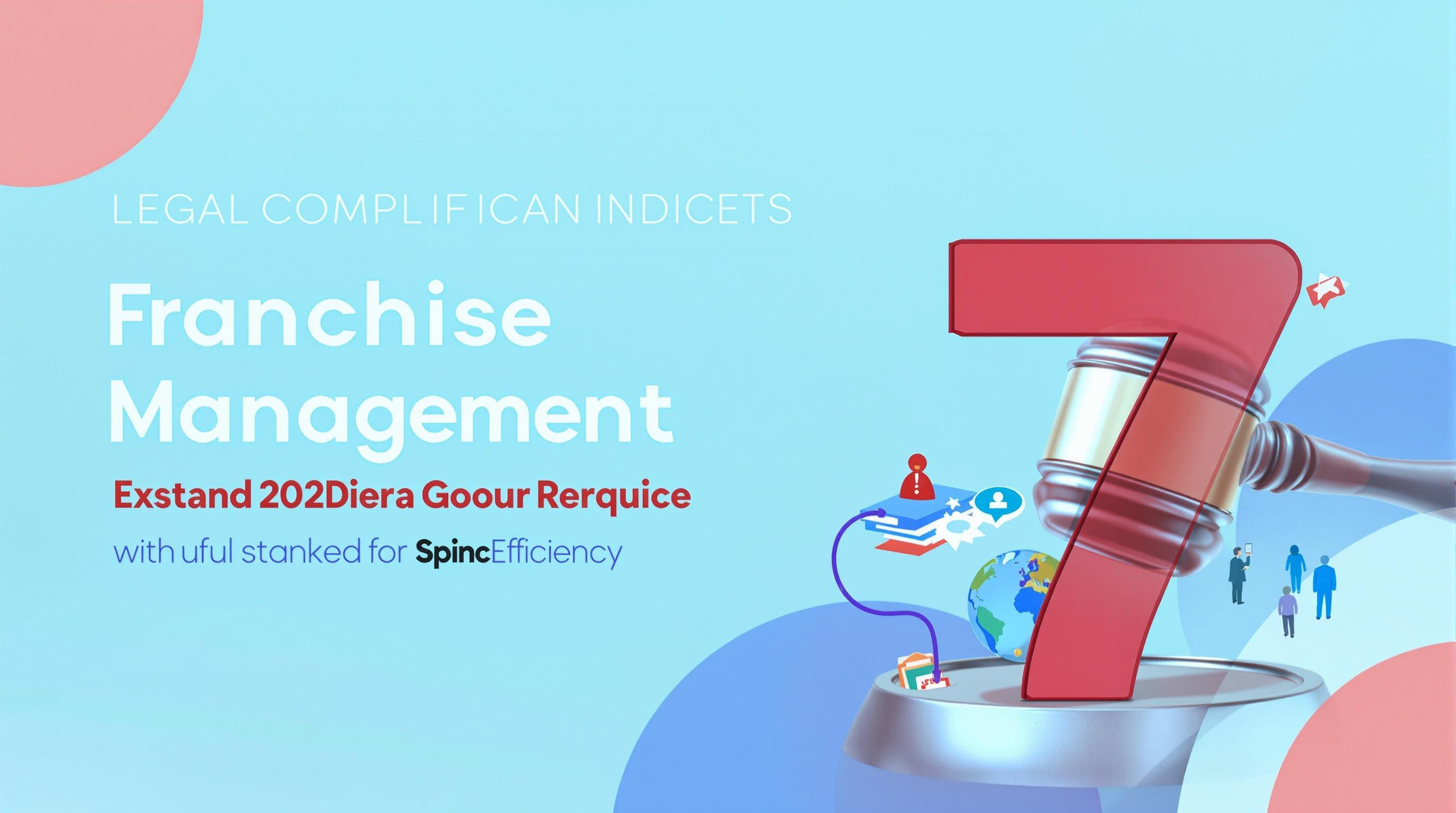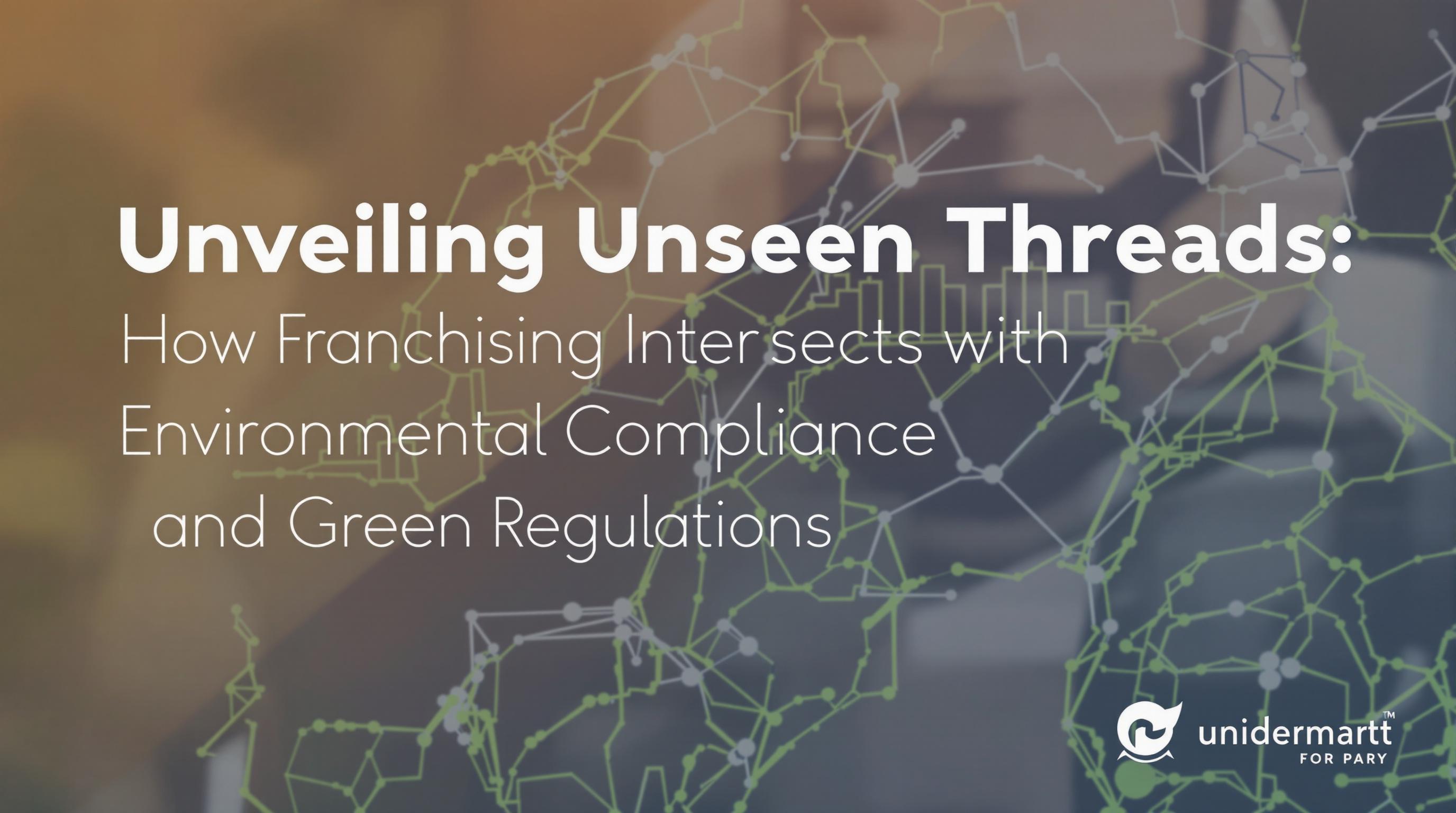Related Articles
- 7 Best Emerging GDPR Tools to Future-Proof Your Data Strategy Beyond Standard Compliance
- 7 Cutting-Edge Franchise Management Softwares Released Since 2019 Ranked for Legal Compliance and Efficiency
- How Forgotten Folklore Influences Modern Privacy Norms and Unexpected Data Protection Practices
- When Silence Speaks: The Unexpected Impact of Cultural Nuances on Confidential Agreement Effectiveness
- Unveiling Unseen Threads: How Franchising Intersects with Environmental Compliance and Green Regulations
- Unraveling the Impact of Cultural Misalignment in Cross-Border Collaborations on Partnership Sustainability
Top 7 Innovative Legal Tools Launched in the Last 5 Years for Streamlining Franchise Compliance and Disputes
Top 7 Innovative Legal Tools Launched in the Last 5 Years for Streamlining Franchise Compliance and Disputes
Top 7 Innovative Legal Tools Launched in the Last 5 Years for Streamlining Franchise Compliance and Disputes
Introduction to Legal Innovation in Franchise Management
In the rapidly evolving world of franchising, maintaining compliance and efficiently resolving disputes have become increasingly complex. The last five years have witnessed a surge in innovative legal technologies designed specifically to streamline these processes. These tools harness automation, artificial intelligence, and data analytics to offer franchisors and franchisees smarter, faster, and more cost-effective solutions.
Traditional legal methods, dominated by manual contract reviews and prolonged negotiation periods, often delay franchise operations and inflate costs. Today’s legal technologies mitigate these issues by refining workflows and enhancing transparency. This shift not only improves compliance adherence but also reduces the risk of costly disputes escalating into litigation.
With franchise systems becoming more global and diversified, the need for specialized digital tools has never been greater. The following sections detail the top seven innovations introduced in this niche, revealing how they empower legal teams and franchise networks alike.
1. AI-Powered Contract Analysis Platforms
One of the most groundbreaking advancements in franchise law is the use of artificial intelligence to analyze franchise agreements. Tools like LawGeex and Kira Systems leverage machine learning to automatically review contracts, flagging non-compliance risks and potential dispute triggers.
These platforms significantly reduce the time required for contract vetting—from days or weeks to mere hours. By identifying inconsistencies and outdated clauses, they empower legal teams to proactively amend agreements before they cause operational hiccups.
Moreover, AI engines continuously improve through data ingestion, enabling smarter detection of subtle legal issues. This not only enhances compliance management but also serves as a dispute prevention mechanism by clarifying ambiguous terms upfront. (Source: LawGeex, 2022)
2. Blockchain for Secure Franchise Records
Blockchain technology has found a novel application in franchise compliance through immutable record keeping. By storing key documents and transaction histories on distributed ledgers, franchisors and franchisees gain unprecedented transparency and security.
This tamper-proof system ensures that compliance certifications, amendment logs, and fee payments are permanently verifiable. Stakeholders can trust the integrity of the data, mitigating disputes arising from record discrepancies or alleged fraud.
Early adopters using platforms like Guardtime have reported streamlined audits and simplified regulatory reporting. Blockchain thereby acts as both a compliance guarantee and a dispute resolution reference point. (Source: Guardtime, 2021)
3. Automated Regulatory Monitoring Tools
Compliance in franchising often hinges on staying updated with changing regulations across multiple jurisdictions. New tools such as ComplyAdvantage employ automation and real-time data feeds to monitor applicable laws continuously.
These platforms alert legal departments of amendments impacting franchise disclosure documents, taxation, employment laws, and more. Instant notifications allow timely adaptations to contracts and operational procedures, reducing the risk of inadvertent violations.
By easing the regulatory tracking burden, automated monitoring tools decrease legal overhead and dispute incidences caused by non-compliance. They are an indispensable part of modern franchise legal ecosystems. (Source: ComplyAdvantage, 2023)
4. Collaborative Dispute Resolution Platforms
Resolving franchise disputes traditionally entails protracted litigation or arbitration, often straining relationships. New collaborative platforms like Modria facilitate online dispute resolution (ODR), promoting mediation and negotiation in a streamlined digital environment.
These tools provide a secure, neutral space where franchise parties can share evidence, communicate, and settle conflicts with the aid of virtual mediators. This approach diminishes costs and preserves partnerships by focusing on amicable resolutions.
The scalability and convenience of ODR platforms make them especially beneficial for multi-unit franchise systems facing frequent minor disputes. They represent a forward-thinking shift towards less adversarial legal processes. (Source: Modria, 2020)
5. Smart Compliance Dashboards
Managing compliance metrics across dozens or hundreds of franchise units demands clear visibility and actionable insights. Smart compliance dashboards aggregate data such as audit results, training completions, and contract statuses into unified interfaces.
Developed by providers like FranchiseGuard, these dashboards offer real-time analytics that highlight risk areas and upcoming compliance deadlines. Visual reporting tools enable franchise legal teams to prioritize interventions and verify adherence systematically.
Such technology transforms raw compliance data into strategic intelligence, helping reduce lapses and costly enforcement actions. Dashboards thus serve as the nerve center for proactive franchise governance. (Source: FranchiseGuard, 2022)
6. AI-Driven Franchise Disclosure Document (FDD) Creation
The Franchise Disclosure Document is a cornerstone of franchise compliance but notoriously complex to draft and update. Recently, AI-driven platforms like LexisNexis Franchise Solutions have emerged to automate and enhance the FDD creation process.
By analyzing templates, regulatory requirements, and past filings, these tools generate customized and compliant FDDs faster. They also incorporate predictive analytics to identify problematic language that may lead to compliance gaps or disputes.
This innovation not only accelerates franchise launches but also mitigates legal risks by ensuring comprehensive and up-to-date disclosure. It represents a remarkable fusion of legal expertise and artificial intelligence.
7. Digital Training and Certification Systems
Ensuring franchisees and their employees remain trained on legal compliance is vital for risk reduction. Digital platforms like Skillcast provide e-learning modules combined with certification tracking tailored to franchise regulatory frameworks.
These systems automate compliance education and document proof of completion, crucial during audits or disputes. The convenience of on-demand access and progress reporting fosters higher engagement and accountability.
Our industry surveys reveal franchises using such tools experience fewer operational deviations and legal challenges, highlighting their effectiveness in embedding a culture of compliance throughout the network. (Source: Skillcast, 2023)
Conclusion: The Future of Franchise Legal Tech
The last five years have clearly ushered in a wave of smart legal technologies transforming franchise compliance and dispute management. From AI contract analysis to blockchain record keeping, these tools are enhancing the speed, accuracy, and collaboration essential to legal success in franchising.
As these innovations mature, they promise even greater integration and automation, empowering franchise systems to operate with minimal friction and maximum transparency. Practitioners should embrace these advancements to safeguard their franchises and unlock competitive advantages.
Ultimately, the marriage of legal expertise with cutting-edge technology is revolutionizing the franchising landscape—turning compliance and dispute resolution from costly headaches into strategic opportunities.



